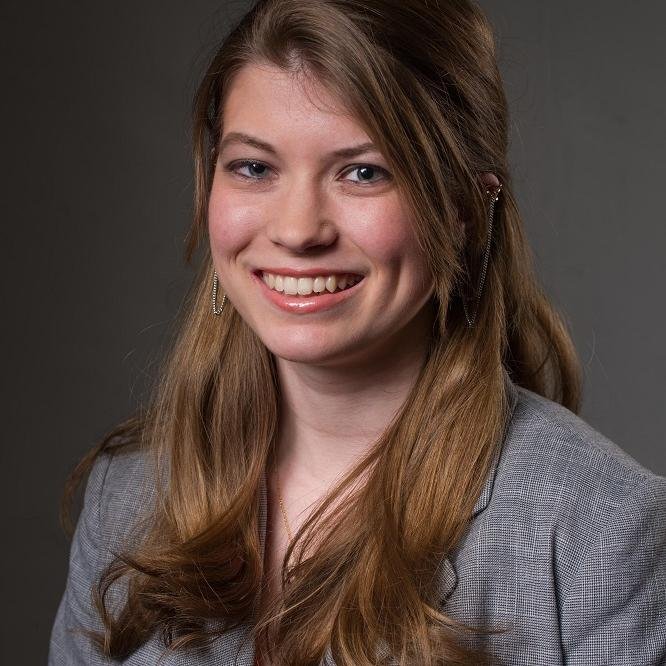Women in STEM Wednesday Spotlight: Rocket Scientist Turned CEO Natalya Brikner
Photo Credit: Career Contessa
This Wednesday's Women in STEM spotlight is Dr. Natalya Brikner, a PhD rocket scientist who has put her entrepreneurial skills to the test by starting a rocket propulsion company.
Natalya grew up in Oregon and moved to San Diego to get her Bachelors in Aerospace Engineering at San Diego State University. She moved on to Duke where she received a Masters in Aerospace Engineering. As of this year, Natalya received her PhD from the Massachusetts Institute of Technology.
While at MIT, Natalya exercised her business skills with her involvement in MIT's $100K Business Plan Competition, as well as other entrepreneurship competitions.
Her company, Accion Systems, was created using a patented technology Natalya and others created and perfected in the Space Propulsion Lab at MIT. Accion Systems is developing micro ion thrusters for small satellites which will allow these satellites to stay in orbit longer, thereby enabling them to have more functionality over a longer period of time.
Natalya pitching at MIT Sloan Women in Management Pitch Competition
Natalya wanted to ensure that the technology she was working on in a lab at school could be commercialized to provide benefit to those who are sending products and experiments to space. To do that, she needed to become a business-savy entrepreneur (in addition to being a rocket scientist). This required many hours of research, skill-building, and of course - paperwork - in addition to, you know, working on her PhD thesis.
Today, all that work has paid off because she is now a PhD-carrying CEO of a multi-million dollar space propulsion start-up. A rocket scientist and an entrepreneur? Natalya is a pretty awesome role model for students who have interests in science, business, and making a difference.
I was able to ask Natalya a few questions, which are posted below.
What's most exciting about what you are currently doing with Accion?
At Accion we're most excited by the opportunity to help extend access to space by providing novel propulsion systems for satellites. More affordable access to space has tremendous implications for organizations and individuals; some exciting applications include Internet access for the other three billion people on Earth, improved disaster monitoring and response, and the Alzheimer's research in progress on the International Space Station. Unfortunately, since humans first launched a satellite into orbit almost 60 years ago, space has remained largely off-limits, accessible only to a handful of well-subsidized organizations around the world.
In the past few years, barriers to space have started to come down as a result of advances in other fields like manufacturing and electronics (check out Matt Ridley's writing on how even the most revolutionary breakthroughs are the result of the cumulative collaboration between many, many people and ideas, often separated by decades or continents. Good stuff.). One lingering obstacle to the widespread adoption of satellites is inexpensive, reliable propulsion, so that's what we've set out to tackle.
Did you always like STEM growing up?
I did. I struggled with subjects that required brute force memorization, but found math and science intuitive and awesome. I participated in science fairs, math competitions, and other related extracurriculars.
What's your favorite hobby?
Reading: non-fiction, biographies, murder mystery novels, business books... you name it. I'm currently on a fiction kick. I find reading even lighthearted novels helps me to keep learning. I'll likely, at least, pick up a couple of new words.
What fun quality of STEM do you think would surprise most students?
That the principles, theories, and skills you learn pursuing a career in STEM are wondrously related and transcend boundaries between fields. I'll give two examples. First, a formula for pricing options in finance is the same equation used to model heat transfer in thermodynamics... Whoa. Second, I read recently that researchers are studying how ants defend their colonies to develop more robust email spam filters.
So while on paper your title may read "World's Expert on the Heartbeat Patterns of Hummingbirds or Something", by pursuing a career in STEM, you've learned HOW to learn, and have the potential to contribute to other branches of STEM, or finance, or the humanities, in more ways than you could ever imagine.
Thanks to Natalya for being my Women in STEM Wednesday!
Natalya is on Twitter at @Natalya926
Accion Systems is on Twitter at @AccionSystems
If you liked this, check out my other Women in STEM Wonder Women below.
Stay up to date with Emily's work:








